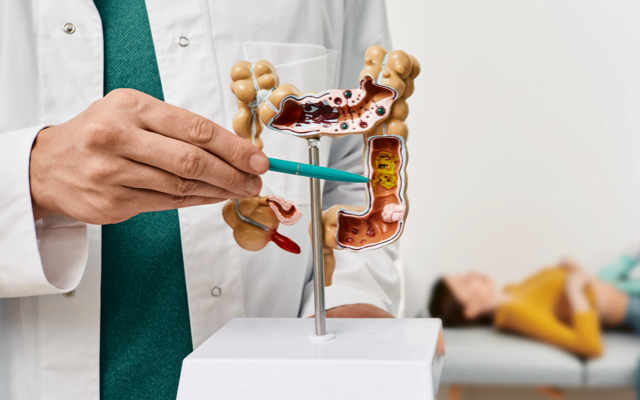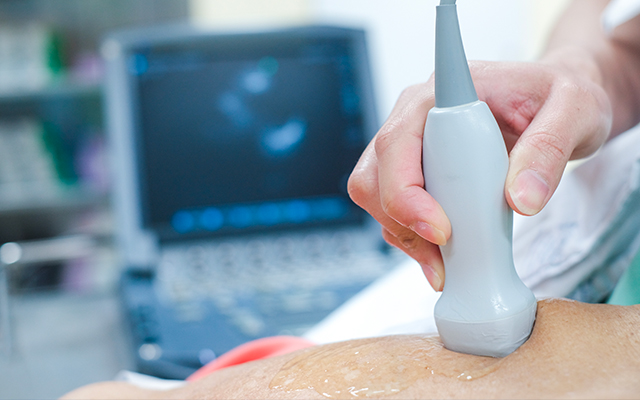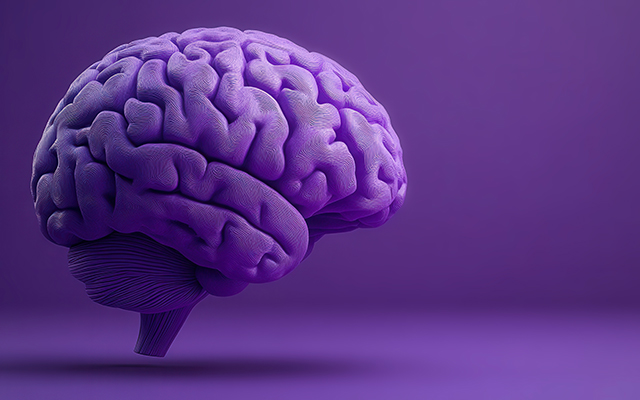To develop the best possible treatment plan for you, we will need to confirm your diagnosis, understand the extent of your IBD, or make a new diagnosis. To do this, we may perform diagnostic tests such as blood or fecal tests, imaging, or an endoscopy with biopsy. These tests will help us establish an accurate diagnosis and formulate an individualized treatment plan.
Our center’s philosophy: to offer you personalized follow-up based on numerous experts, adapted to your medical situation.
Main team
Support team


It is not enough to treat the intestine: we must also care for the person behind the disease.
Sophie Restellini
Center Director
Gastroenterologists are specialists who diagnose and plan treatment for chronic inflammatory bowel diseases.


Children are not miniature adults.
Laetitia Marie-Petit
Pediatrician
The diagnostic process for children is broadly similar to that for adults; however, certain specific issues such as growth, puberty, and overall development must be taken into account.


Surgery for IBD: a solution, not a failure.
Nicolas Buchs
Visceral surgeon
Despite advances in the treatment of IBD, many people with Crohn’s disease and ulcerative colitis will require surgery at some point in their lives.
Surgery should not be considered a last resort in the treatment of these diseases, nor a sign of failure of your treatment or yourself. In fact, surgery should be considered one treatment option among many.
Our visceral surgery team is particularly skilled in complex and innovative surgical techniques, including resection surgery, stricturoplasty, and ileoanal anastomosis reconstruction. The medical-surgical proctology team is able to offer a full range of treatment options for the management of anoperineal lesions in Crohn’s disease.
Surgery is considered in the event of complications from the disease, most often in consultation with medical treatment for:
Fistulas* (communication between two intra-abdominal organs or between the anus and the surrounding skin, known as an “anal fistula”) and especially abscesses.
Intestinal narrowing (stenosis), which is often present in Crohn’s disease.


Understanding IBD often begins under the microscope, where each tissue fragment illuminates the technical path.
Giacommo Puppa
Pathologist
Optimal management of IBD includes blood tests and stool samples, as well as biopsies (removal of a very small piece of tissue) during endoscopy. Laboratory results are used both to establish the diagnosis and to assess the progression of the disease or the success of treatment.que pour l’évaluation de la progression de la maladie ou du succès du
traitement.




Food is not just about feeding; it supports the balance between well-being and treatment.
Maude Martinho Grueber
Gastroenterologist
Since chronic inflammatory bowel disease
(IBD) affects the digestive system, food is logically a major concern
for our patients.
The fundamentals of healthy eating apply specifically to people with Crohn’s disease or ulcerative colitis.
> Learn more about the nutrition service at Hôpital de La Tour



Imaging refines clinicians' observations and clarifies patients' treatment paths.
Sylvain Terraz
Radiologist
Several imaging techniques are available for the initial diagnosis of chronic inflammatory bowel diseases (IBD) and to monitor their progression. These techniques make it possible to determine the extent and activity of the disease and, above all, to examine the central section of the small intestine, which cannot be reached using an endoscope.
Ultrasound and MRI are generally the modalities used for follow-up, but other imaging techniques that can be used in cases of IBD include:


Functional does not mean imaginary: the gut-brain axis is often involved.
Diana Ollo
Gastroenterologist
Pain management is a fundamental aspect of care for patients with IBD. While some pain is linked to active inflammation, other types of pain can persist even when there is no inflammatory activity. This type of pain, known as functional pain, is common and often debilitating. It requires comprehensive management, incorporating physical, psychological, and sometimes pharmacological approaches tailored to each patient. The goal is to provide long-term relief from symptoms and improve quality of life on a daily basis.


An essential pillar of support, the IBD nurse provides information, coordination, and support.
Vanessa Laffin
Nurse, IBD Center
An IBD specialist nurse acts as the link between you and your doctor. She is available to answer your questions and schedule your appointments. Think of her as your trusted advisor.
Our IBD coordination nurses provide therapeutic education for all IBD patients, as well as specific care pathways for patients with extraintestinal manifestations or comorbidities.
Therapeutic education makes it possible to:

For many people, starting a family is the most important and precious thing in life. This is no different for people with IBD. Of course, planning to start a family in this situation raises a number of questions about the disease.
It is important to discuss this with your gastroenterologist or gynecologist beforehand to obtain medical advice. Discuss with them any points that seem essential or that concern you. There is no universal recommendation for all questions, and the right answer often depends on your personal situation.

Patients with IBD may suffer from joint complications, such as arthritis or spondyloarthropathies, which are often linked to the disease itself. Rheumatology plays a key role in identifying and treating these extra-digestive manifestations. Early, personalized follow-up can relieve joint pain and preserve mobility, thereby contributing to a better quality of life.

Ilias Lazarou
Rheumatologist

Danièle Allali
Immuno-allergologist
> View profile

Skin disorders may occur in patients with IBD, either due to systemic inflammation or as a complication of immunosuppressive treatments.The dermatologist is involved in diagnosing, treating, and preventing these skin lesions, thereby improving patient comfort and safety.

Dr Emmanuel Laffitte
Dermatologist
> Consultation for autoimmune diseases with skin involvement

Pharmacology is essential in the management of patients with IBD, as it allows for the monitoring of drug interactions and ensures the effectiveness of treatments while minimizing side effects. Medications, particularly biotherapies and immunosuppressants, require careful monitoring to ensure that they are well suited to the individual needs of patients.

Our commitment to clinical and translational research allows us to constantly update our practices and offer our patients treatments based on the latest scientific discoveries. In addition, our role in teaching allows us to share our knowledge with other healthcare professionals, thereby contributing to better patient care at the national and international levels.


The internist is the conductor of complex chronic diseases.
Omar Kherad
Chief Physician, General Internal Medicine Department
IBD is a systemic disease that can affect the entire body and sometimes lead to multiple comorbidities or complications. In this context, internal medicine plays an essential role as the “conductor” of the patient’s overall care. The internist coordinates care, taking into account the patient’s medical history, general condition, and treatments.



Complementary medicine, such as acupuncture, hypnosis, or herbal medicine, can be beneficial as a complement to conventional treatments. It helps manage symptoms, such as chronic pain or stress, that can accompany IBD. These approaches allow for more comprehensive care, taking into account the physical, emotional, and psychological needs of patients. We work exclusively with qualified and recognized practitioners, ensuring safe and professional care.



“The bidirectional relationship between IBD and psychological problems can be explained by the “”brain-gut interaction.”” It has been observed that the presence of anxiety and depressive symptoms or disorders can aggravate intestinal inflammation or contribute to disease relapse. Conversely, the disease has a direct impact on mood and quality of life in general, as it generally affects daily activities, work ability, and social life.
Mental health is an important part of the care of these patients, but it is too often neglected.
The Crohn’s and Colitis Center collaborates with the Archipel Center, which offers several approaches that can help patients suffering from IBD and aims for sustainability by evolving practices and integrating new technologies such as telemedicine and alternative therapies into its activities.”